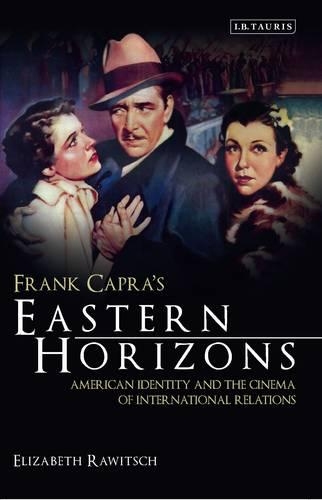
Frank Capra's Eastern Horizons: American Identity and the Cinema of International Relations
(Hardback)
Publishing Details
Frank Capra's Eastern Horizons: American Identity and the Cinema of International Relations
By (Author) Elizabeth Rawitsch
Bloomsbury Publishing PLC
I.B. Tauris
30th September 2014
United Kingdom
Classifications
Tertiary Education
Non Fiction
791.430233092
Physical Properties
Hardback
264
Width 156mm, Height 234mm
578g
Description
Frank Capra has long had a reputation as being the quintessential American director - the man who perfectly captured the identity and core values of the United States with a string of classic films in the 1930s and '40s, including It Happened One Night, Mr. Smith Goes to Washington and It's a Wonderful Life. However, as Elizabeth Rawitsch argues, Capra's construction of national identity did not occur within an exclusively national context. She points out that many of his films are actually set in, or include sequences set in, China, Latin America, the Philippines and the South Seas. Featuring in-depth textual analysis supported by original archival research, Frank Capra's Eastern Horizons explains that Capra's view of what constituted 'America' changed over time, extending its boundaries to embrace countries often far from the United States. Complicating Edward Said's theory of Orientalism as a strict binary in which the West constructs the East as an inferior 'other', it demonstrates that East and West often intermingle in films such as The Bitter Tea of General Yen and in Capra's orientation documentaries for World War II American servicemen; Capra imagined a kind of global community, albeit one with heavy undertones of British and American imperialism. Investigating shifts in what Capra's America has meant over time, both to Capra and to those who have watched and studied his films, this innovative book offers a startlingly fresh perspective on one of the most iconic figures in American film history.
Reviews
'Considered "American" to the core, Frank Capra actually spent his life in ethnic-national borderlands, negotiating an identity between the place of his birth on the island of Sicily and the relatively new nation of Italy as well as between the ethnic Italian enclaves of his youth in California and Hollywood, the "melting pot" of Americanism for the world. To prove he was not a foreigner, not a fascist, not "exotic," and not the "enemy," he turned to Asia and the Pacific, creating a vision of "Eastern horizons" to legitimize a particular American identity for himself and his audiences. In this carefully researched and convincingly argued book, Elizabeth Rawitsch explains how Capra used his camera in service to his adopted nation to create "global dialogues" involving Asia in which the notion of "America" was always an ideological work in progress. Her fascinating analysis of the Jackie Chan vehicle, Miracles(1989), based on Capra's Lady for a Day and Pocketful of Miracles, is one of the many highlights of the book. Rawitsch's exploration of the afterlife of Capra's oeuvre in Hong Kong provides a fitting reminder of Capra's continuing contribution to the dialogue between the national and the global on contemporary screens.' Gina Marchetti, Professor, Department of Comparative Literature, University of Hong Kong 'Just when you thought there was nothing more to say about legendary director Frank Capra, Elizabeth Rawitsch's new book casts significant and illuminative light on a facet of Capra little discussed. The director' shandling of, and philosophy towards, "the East" is a crucial aspect of all his output, and Rawitsch's work explores the features, foibles and failures at the heart of Capra's chinoiserie. With primary evidence and new readings of some of his more obscure and/or neglected movies - notably The Bitter Tea of General Yen and Lost Horizon-Rawitsch has constructed a fascinating new picture of a complex and complicated filmmaker. Frank Capra's Eastern Horizons is a tremendous accomplishmentand a terrific addition to the literature not only on Capra, but on Hollywood projections of the world, American identity, and transnational cinema in the golden age of the film industry and beyond. Strongly recommended.' Ian Scott, author of In Capra's Shadow: The Life and Career of Screenwriter Robert Riskin
Author Bio
Elizabeth Rawitsch received her PhD in Film, Television, and Media Studies from the University of East Anglia, UK. Her research on classical Hollywood film, national identity and American popular culture has appeared in The Journal of Popular Film and Television and In Media Res .
